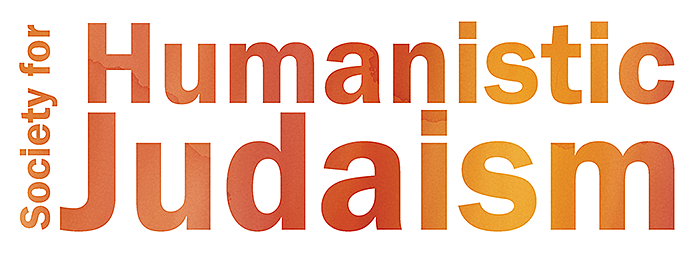
This essay by Rabbi Mary Raskin was presented as a talk at the yearly retreat of the Society for Humanistic Judaism (SHJ) Board of Directors, April 28, 2023 Detroit, MI. Rabbi Raskin is the president of the SHJ and the rabbi of Cultural Synagogue in Portland, OR.
Hello everyone and Shabbat Shalom. As always, it is wonderful to be here reconnecting with friends, colleagues, and my esteemed fellow SHJ board members. 
The ancient rabbis left us with a legacy of asking questions. Some of their questions and responses are a guide for us today. What is the legacy we, as Humanistic Jews, strive to bequeath?
Ten days ago, we commemorated the Shoah. We remembered those who perished. We honored those who are still with us. We acknowledged the trauma that continues to impact the descendants of those who perished and those who survived.
Last month there was a profound exchange of ideas about Yom HaShoah on the SHJ Leadership Google Group. Allan Malkis, President of Or Emet Minnesota, wrote movingly about our Humanistic Jewish approach
“The Shoah is a reminder of the terrible things that human beings do to one another, and of the strength of human beings who can survive such horrors. It also makes clear that preventing recurrences of genocide lies solely with human beings. No supernatural power could or did inspire/decree/foreordain such behavior, and none could or did act to end it. We are all responsible for working to prevent these crimes against humanity and to hold accountable those people who create them, regardless of their nationality, ethnicity, political persuasion, or religious beliefs. This commemoration gives us a chance to mourn the millions who suffered and to dedicate ourselves to respecting and caring for all people.”
In the same exchange Rabbi Eva Goldfinger, a rabbi from Oraynu Congregation in Toronto, Ontario counseled:
“It is up to us to ensure that the legacy we leave our children is not one of hate, war or nuclear or environmental disasters.”
It is the concept of legacy that I want to focus on this evening.
One of the legacies the ancient rabbis gave us was that of asking questions. The early rabbis lived through a time of significant strife. Their legacy of asking questions is relevant to us as wrestle with the strife we see today. One of the questions posed by the early rabbis in the Pirkei Avot, the Ethics of the Fathers, is especially relevant.
A rabbi asked: “What is the right path a person should choose?” (2:1)
The rabbi responded: “Whatever is honorable to oneself, and honorable in the eyes of others.” (2:1)
Hillel said: “In a place where there are no worthy people, strive to be worthy.” (2:5)
He also said: “A person who acquired a good name, has acquired something indeed.” (2:8)
This question “What is the right path for us to choose?” is relevant for us today.
How are we to consider their ancient responses today? What does it mean to be honorable? What does it mean to be worthy? What does it mean to acquire a good name?
My response is that honorable people, worthy people, those who have acquired a good name are those who live their values from a place of love.
As Humanistic Jews, our strength comes from our values of love.
- Love of our Jewish Cultural Identity: Where we draw strength from our history, rituals, achievements, literature, music, arts, food, humor, and wisdom tradition.
- Love of Community: Where coming together in times of celebration and loss improves our lives through belonging, support, and meaning reflecting our ethical core.
- Our love is Inclusive: We welcome as Jewish any person who chooses to identify with the culture and traditions of the Jewish people as well as the non-Jews who participate in our communities.
All of you experience these values in your communities. What I want to share this evening is how your leadership practices these values. In addition to the Yom HaShoah conversation on the Leadership Listserv, there are two other conversations I want to tell you about.
One conversation was about the use of the spiritual Go Down Moses in our Passover Haggadahs. The first email included an article from Global Jews that advocated retiring the song. The thoughtful and respectful responses gave all of us new ways to think about Passover, our Haggadahs, and the message we want to send in our liturgy. One respondent provided a contemporary introduction to the song citing its history and importance.
The other conversation came from a request for a PowerPoint presentation on Humanistic Judaism that could be modified for a talk at a local JCC. Two leaders responded with links to presentations that were ready for personal editing and presentation. All of us appreciated the speedy response.
There is another important characteristic of those who live their values from a place of love. That characteristic is hope. Rabbi Wine said: “hope is a choice, never found, never given, always taken.”
As Humanistic Jews, we strive to live by our humanistic values because we know that our foundation of love gives us hope and the strength to act.
- Human Agency: We know people have the power to achieve global survival, happiness, and dignity using their own abilities.
- Social Justice: We know we can work with others for a future where the dignity and freedom of every human being is upheld.
- Critical Thinking: We know that through science, empirical evidence, reason, experimentation, empathy, creativity, and artistic expression we can address Jewish and universal human questions to improve the world and ourselves.
The world needs people living the values I described. One of the most important ways the Society for Humanistic Judaism is striving to meet this need is through our pluralistic initiative Jews for a Secular Democracy. JFASD is working to defend the separation of church and state.
The dream for this initiative began in 2017. Today there are organized cohorts in New York, Florida, and Michigan. There are over 30 videos available on its YouTube channel recorded from the meaningful presentations that occur regularly. JFASD provides the opportunity to send messages to our local politicians on important national legislation.
There are also four part-time staff in addition to Paul Golin. Two of them are leaders located locally here in Michigan: Katie Reiter, National Coordinator (who now lives in Tucson for part of the year) and Nomi Joyrich, Michigan Director of JFASD. Tomorrow evening you can join us for a panel discussion with Michigan Senator Rosemary Bayer and President Pro Tempore Senator Jeremy Moss about the separation of religion and government in Michigan today.
I began with an acknowledgment of a difficult topic, the Shoah. We are not living in a time such as the Shoah. We are living in a time when we need to be concerned and active about the human rights of people within our country and the world. We must ask ourselves: what is the right path to take?
What legacy do we, as Humanistic Jews, want to leave?
Humanistic Jews come together in love. Love of our history, love of our culture, love of learning, love of laughing and joy, and love of community. It is this love that creates the “right path” for us. This love gives us, together, the strength to hope and to act.
Rabbi Wine wrote that “hope is an act of will, affirming, in the presence of evil, that good things will happen, preferring in the face of failure, self-esteem to pity. Optimists laugh, even in the dark. They know that hope is a lifestyle – not a guarantee.”
Without love, there is no hope. Without hope, there is no action. Therefore, our legacy must be one of love. And indeed, the ancient rabbis would agree.
Rabbi Yohanan said: “Go and observe what is the right way that a person should embrace.”
Rabbi Eliezer said: “Have a good eye.”
Rabbi Yehoshua said: “Be a good friend.”
Rabbi Yoseh said: “Be a good neighbor.”
Rabbi Shimon said: “Be one who sees consequences.”
Rabbi Elazar said: “Have a good heart.”
Rabbi Yohanan said to them: “I prefer the words of Rabbi Elazar to yours, because his words – have a good heart – include yours as well.” (2:9)
_______________________________________________
Humanistic Judaism Values. Mission and Vision – Society for Humanistic Judaism (shj.org)
Pirkei Avot 2. Pirkei Avot 2:1 (sefaria.org)
Rabbi Wine, “Hope is a Choice” from Here is Our Light, pages 5-6.




Leave a Reply